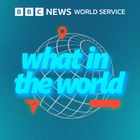
What in the World
Jan 1, 2025
The Rights of Nature movement wants to give inherent rights to nature - so forests, animals and rivers would have the right to protection. More and more countries are starting to adopt this kind of legislation. Ecuador became the first country in the world to codify Rights of Nature in its constitution in 2008. In New Zealand, legislation has recognised the mountainous region Te Urewera and the Whanganui River as legal persons. In 2022, the Spanish lagoon Mar Menor became the first natural entity to be granted legal status as a person within Europe. BBC Climate and science reporter Georgina Rannard explains how it works and whether the approach is helping to protect the environment.
Another part of the movement wants to see nature recognised for the role it plays in music too. The people behind a track called The Song of the Cedars are petitioning Ecuador’s copyright office to recognise Los Cedros forest as a co-creator, given it was composed there.
Sounds Right is a global music initiative which encourages artists who use sounds from nature - like rain or animal noises - in their tracks to redirect some of the royalties they collect to help conserve and protect nature. Bill Sellanga, aka Blinky Bill, a musician and DJ based in Nairobi, tells us why he signed up, for his track OH WAH feat. NATURE.
Instagram: @bbcwhatintheworld WhatsApp: +44 0330 12 33 22 6 Email: [email protected] Presenter: Nathalia Jimenez Producers: Julia Ross-Roy and Mora Morrison Editor: Verity Wilde

